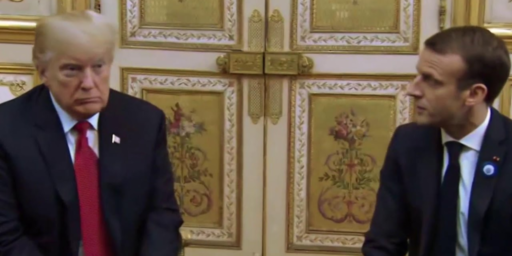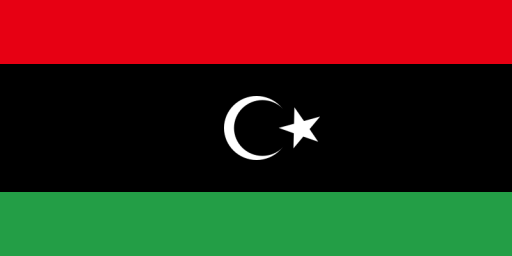Intervention as Far as the Eye Can See
Ivo Daalder and Robert Kagan argue that, contrary to conventional wisdom that the messes in Iraq and Afghanistan will make it incredibly unlikely that an American president will dispatch the military overseas anytime soon, there is a bipartisan consensus for interventionism.
Despite the difficulties in Iraq and Afghanistan, America remains the world’s dominant military power, spends half a trillion dollars a year on defense and faces no peer strong enough to deter it if it chooses to act. Between 1989 and 2001, Americans intervened with significant military force on eight occasions — once every 18 months. This interventionism has been bipartisan — four interventions were launched by Republican administrations, four by Democratic administrations. Since Sept. 11, 2001, the situations in which an American president may have to use force have only grown, whether it is to respond to terrorist threats, to curb weapons proliferation, to prevent genocide or other human rights violations, or to respond to more traditional forms of aggression.
While I opposed virtually all of those missions, I fear Daalder and Kagan are right. The “Do Something Syndrome” has almost certainly not been killed off by the Iraq disaster and our gigantic standing military is the only feasible means by which presidents can respond to most of those problems. That, even though the military has shown time and again that it is an ineffective tool for those missions and we’ve made essentially no progress over the past decade and a half at transforming it into SysAdmin Force.
Daalder and Kagan believe that the key, then, is to figure out how to pick and choose missions and achieve domestic and international legitimacy. They put forth some good, if hardly novel, arguments along those lines. It seems to me, though, that breaking the cycle of intervention and failure would be more desirable.






It seems to me, though, that breaking the cycle of intervention and failure would be more desirable.
That’s not going to happen in the present politcal culture. Right now, we have somehow evolved to the point where sitting U.S. Senators, Congressmen and Presidential candidates blithely advocate invading sovereign nations (even including our allies) to the point of seriously advocating the use of nuclear weapons. These politicians are regarded as “serious thinkers” among the Washington establishment. (see e.g. Joe Liberman, Barack Obama, Hillary Clinton, John McCain, Rudy Giuliani, etc.)
On the other hand, there are other politicians who are willing to point out that most interventions fail and generally cause worse problems than they set out to solve. These politicians are commonly referred to as “whack jobs.”
How’d we get to this point?
Hi James,
This is the primary foreign policy debate, in a nutshell. Yet it seems that the “serious thinkers” inside the Beltway have a very different opinion on how to go forward than most Americans. You, a moderate conservative, are entirely in agreement here with Brian Buetler, a fairly hardline progressive. Today he writes:
As a Brit watching the US debate this issue, I couldn’t agree more with both you and Brian.
Regards, C
Daalder and Kagan believe that the key, then, is to figure out how to pick and choose missions and achieve domestic and international legitimacy.
Something is wrong with this sentence. As long as the spectre of “international legitimacy†is hanging over our heads, we will not be able to effectively “pick and choose missions.†The job of the US government, acting as a sovereign nation, is to use the military to defend the country from external threats. “International legitimacy†is more and more an obstacle to that job. It also leads to dubious, supposedly humanitarian adventures, such as intervening in the Balkans. That politically-correct war resulted in yet another toehold for Islam in Europe.
Thus the need to stick to basics: Send the Marines to destroy the enemies of the United States. In a decade from now, when the heat is on, we will all be wondering how we allowed ourselves the luxury of ordering missions as if they were on a menu in a restaurant.
This may seem like something obvious but the United States is not the only nation in the world with a military and not the only nation in the world with the wherewithal to intervene when needed. The French and Germans are currently spending about half as much as we do as a percentage of GDP on their militaries. I guess it’s a lot more fun to complain about American cowboys than it is to step up to the plate yourselves.
Put me on the list of those who think we should be a little slower to intervene militarily than we have been lately and I also agree with James’s observation on breaking the cycle.
How, exactly, do we go about doing that?
One way is by playing to our strength and engaging in more international trade and economic development activities. I don’t think this is primarily an activity for the government, however.
Greetings,
It’s not that the armed forces are an ineffective tool, it’s that they are the only tools at the President’s disposal.
The CIA has proven itself unreliable from the Plame and Blame events.
The State Department has proven itself unable to mount a sustained campaign overseas to achieve our current goals.
When the CIA has become involved in a political war against the current political leadership and the State Department does not act to effectively implement the associated directives (if not out right ignoring them), to whom should the President turn?
The problem is that, currently, only the Marine Corps and the Army are at war. To the civilian organizations, this is a political power game at home.
Regards,